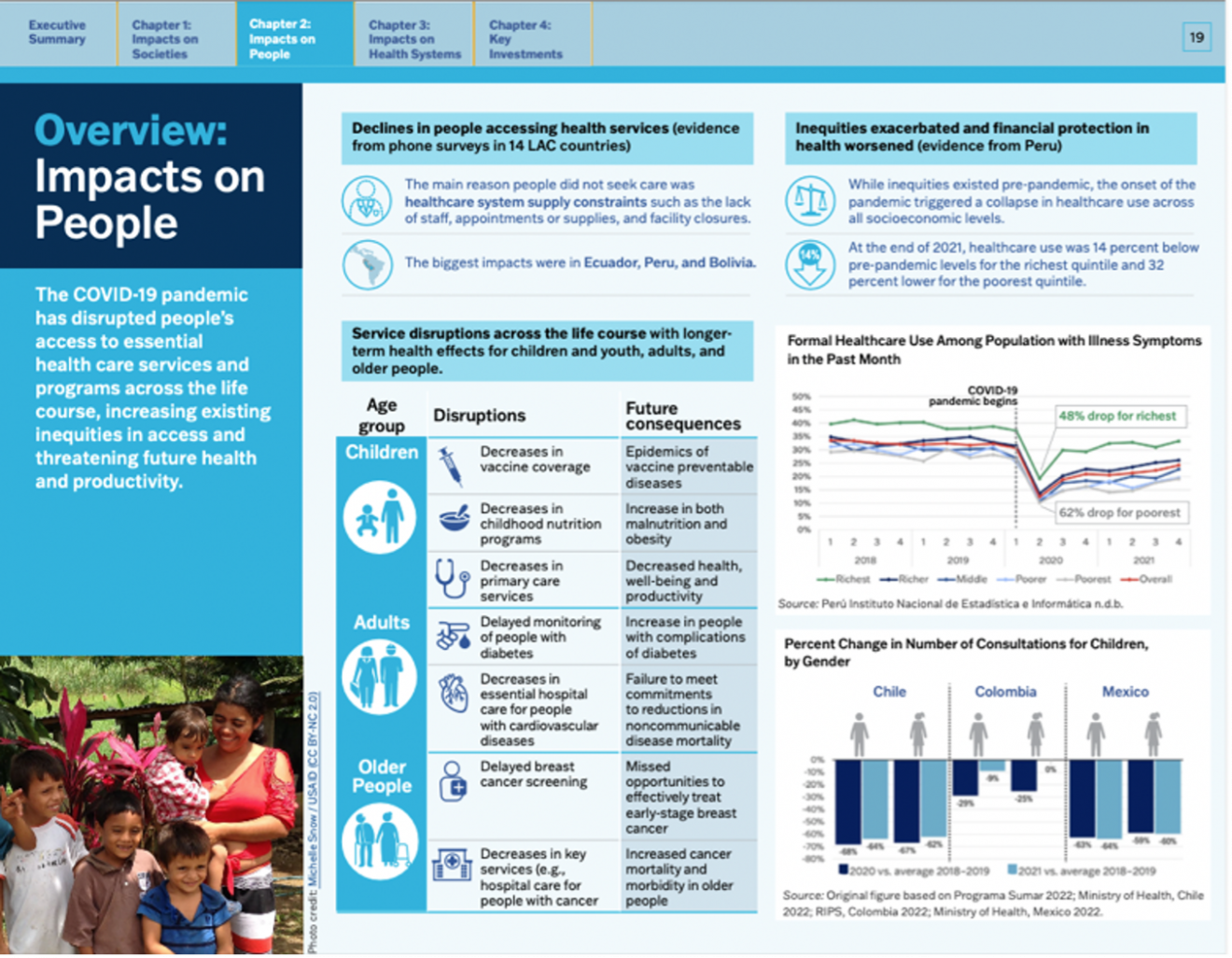IfP Theme Leads Work on World Bank Report
Originally written by IHPME and published on their website May 30, 2023
At the outset of the pandemic, IHPME collaborated with the World Bank Latin America COVID-19 Hub to benchmark policy responses to COVID-19 in early 2020 to South Korea and Uruguay. This resulted in a deep engagement with South Korea and eight countries which led to two ministerial conferences and the publication of a report in December of 2020 that was downloaded over 140,000 times, and a scientific publication in Health Policy Open. The work was led by Dr. Sara Allin, an Associate Professor at IHPME, Director of the North American Observatory on Health Systems and Policies (NAO), and Theme Lead for Pandemic Resilience at the Institute for Pandemics (IfP), Dr. Jeremy Veillard, an Assistant Professor at IHPME and Senior Health Specialist at the World Bank, and a group of PhD students from IHPME.
This collaboration with the World Bank was a phenomenal opportunity for us to provide timely and relevant analyses directly to decision makers across several countries in the first year of the pandemic. IHPME PhD Candidates Mariana Morales Vazquez, Margaret Jamieson and Victoria Haldane were the “dream team” behind this project, and together we helped kickstart ongoing, productive, collaborations with the Bank and the Institute for Pandemics.”~ Associate Professor Sara Allin
After Allin and Veillard’s work was published, Veillard began working with Dr. Geoffrey Anderson, Professor at IHPME and Theme Lead for Pandemic Recovery at the Institute for Pandemics, and others from IHPME on a World Bank report, titled “Building Resilient Health Systems in Latin America and the Caribbean – Lessons Learned from the COVID-19 Pandemic.”
Collaboration on World Bank Report
The NAO
According to their website, “The North American Observatory on Health Systems and Policies (NAO) is a collaborative partnership of interested researchers, research organizations, governments, and health organizations promoting evidence-informed health system policy decision-making.”
The Institute for Pandemics (IfP)
The IfP supported the World Bank in carrying out research on the impact of the pandemic on essential health services, results which were published in January of 2023 in a flagship report released during a ministerial conference held in Chile and which gathered 8 ministers and vice-ministers of health. The report on health systems resilience sets out the strategy for the World Bank in Latin America and the Caribbean. The research work was co-led by Veillard and Anderson, and research assistance was provided by two post-doctoral fellows, Fanor Balderrama Santander and John Sina Moin.
Their team assisted the World Bank Task Team on “Chapter 2: Impacts on People” by assessing the impact of the disruption of health and health care services during the COVID-19 pandemic in Latin American and Caribbean Countries (LAC) and developed the country comparative bar charts and related content.

“This is an excellent example of the opportunities IHPME post-doctoral fellows have to work on important international projects. They worked directly with experts from the World Bank and from countries across Latin America and the Caribbean on obtaining and analysing the data presented in this influential report. That type of experience is invaluable.” ~ Professor Geoffrey Anderson
IHPME Team’s Contributions to World Bank Report Included
- Participating in the regional advisory committee of the study by providing technical guidance to the whole study, including on the methodology, analysis, and report writing.
- Designing an administrative data questionnaire and technical guide for the administrative data analysis to standardize and guide the process of acquiring administrative data on key indicators on disruption of healthcare services across selected countries.
- Centralizing the administrative data acquisition, leading and documenting the analysis and main findings of the administrative data collected on disrupted healthcare.
“These two seminal reports are flagships of a broader knowledge strategy that was carried out by the World Bank in LAC during the pandemic and won global and regional awards for contributing to real-time knowledge generation supporting the response of governments in the region during the pandemic.” ~ Jeremy Veillard
What’s Next
Since the report has been published, the World Bank has held a ministerial event about the report, and the authors of the report have also since posted on the World Bank Blogs’ site about it.
The World Bank, the Dalla Lana School of Public Health (DLSPH), and the Institute of Health Policy, Management, and Evaluation (IHPME) are collaborating on a range of issues related to research and analytics through the NAO, to further their reach and impact.
The IfP has since become an Institutional Strategic Initiative (ISI) to facilitate collaboration across the University of Toronto’s three campuses. The team is now working work on a grant they were awarded to look at the impacts of COVID in various places including Bogota, Colombia, London, England, and Toronto, Canada.
